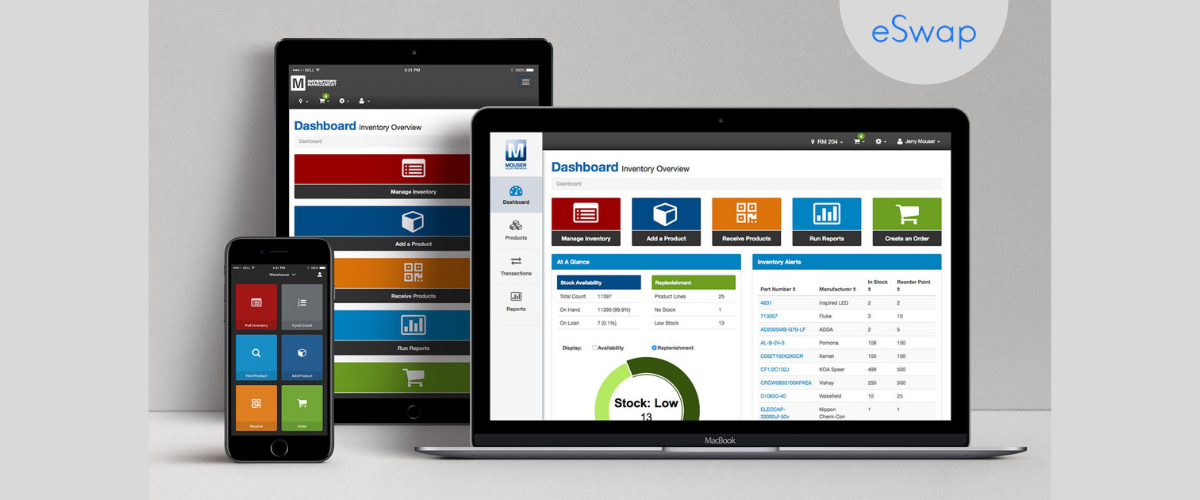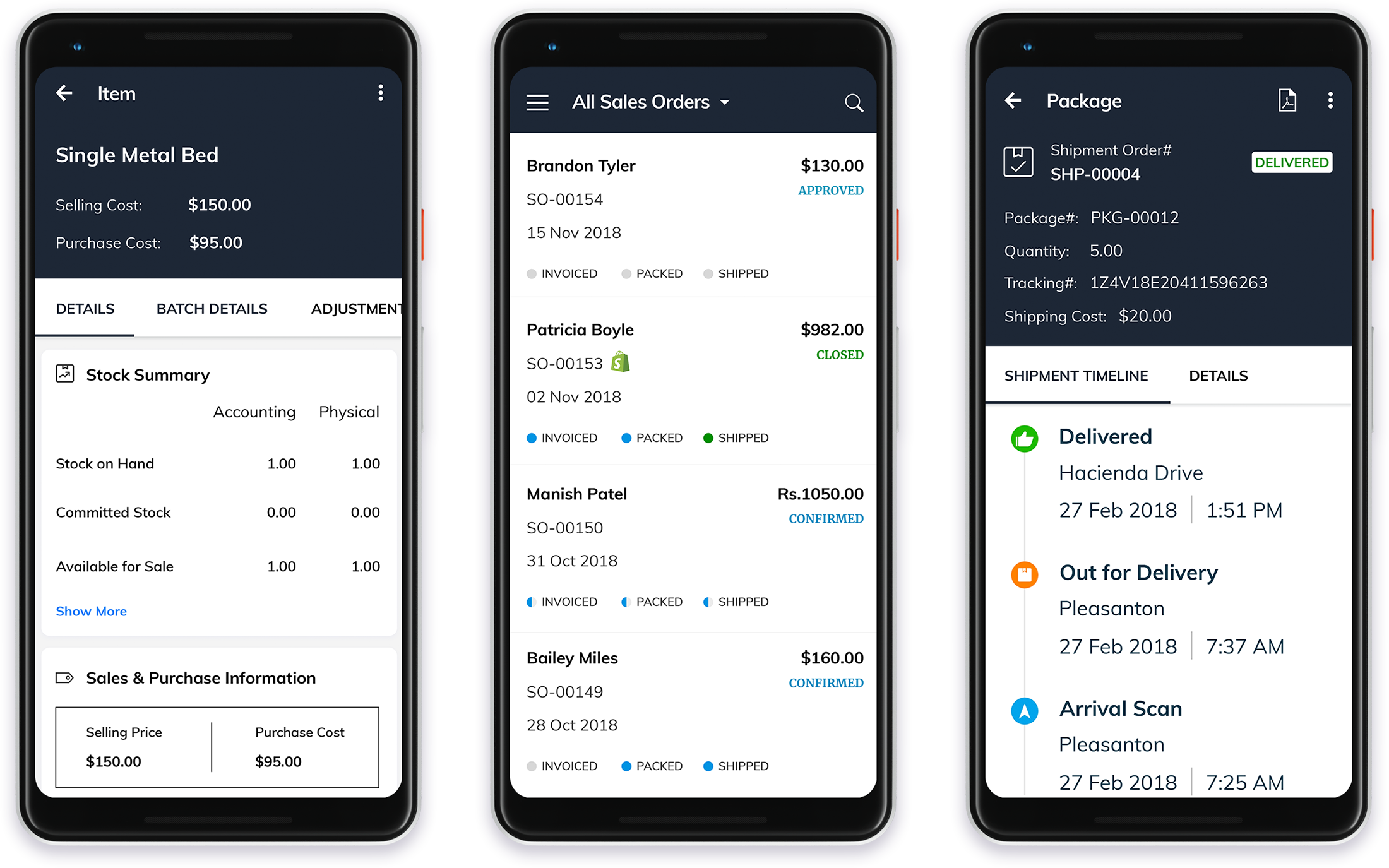The business inventory app for Android empowers businesses to streamline inventory management, optimize operations, and make informed decisions. With its intuitive interface, advanced features, and seamless integrations, this app transforms inventory tracking into a breeze.
From stock management to barcode scanning and robust reporting, the business inventory app for Android equips businesses with the tools they need to maintain accurate inventory levels, reduce errors, and gain real-time visibility into their inventory status.
App Features

A business inventory app for Android should include essential features like stock management, barcode scanning, and reporting to help businesses track and manage their inventory effectively.
Advanced features can include multi-warehouse support for managing inventory across multiple locations, inventory forecasting to predict future demand, and integrations with other business systems such as accounting or e-commerce platforms.
Stock Management
- Add, edit, and delete inventory items.
- Track inventory levels in real-time.
- Set minimum and maximum stock levels.
- Receive alerts when stock levels are low.
Barcode Scanning
- Scan barcodes to quickly add or update inventory items.
- Use the camera on the Android device as a barcode scanner.
- Support for different barcode types (e.g., QR codes, UPC codes).
Reporting
- Generate reports on inventory levels, stock movements, and more.
- Export reports to CSV or PDF format.
- Use reports to identify trends and make informed decisions.
User Interface and Experience

In the realm of inventory management, a user-friendly and intuitive interface plays a pivotal role in ensuring seamless operations and efficient decision-making. A well-designed interface empowers users to navigate effortlessly, visualize data effectively, and search for information with ease, regardless of their technical proficiency.
Effective navigation allows users to locate the desired functions and data quickly and efficiently. Clear menus, intuitive icons, and a logical information hierarchy contribute to an enhanced user experience. Data visualization plays a crucial role in presenting complex inventory information in a comprehensible manner.
Charts, graphs, and dashboards provide a graphical representation of data, enabling users to identify trends, patterns, and anomalies at a glance.
Mobile Optimization and Offline Access
With the proliferation of mobile devices, mobile optimization has become imperative for inventory management apps. A responsive design ensures that the app adapts seamlessly to different screen sizes, providing an optimal user experience on smartphones and tablets. Offline access empowers users to manage inventory even in areas with limited or no internet connectivity, ensuring uninterrupted operations and timely decision-making.
Data Security and Accuracy
In inventory management, data security is paramount, ensuring the confidentiality, integrity, and availability of sensitive business information. Robust security measures protect against unauthorized access, data breaches, and malicious attacks, safeguarding valuable inventory data from theft or misuse.
Encryption methods, such as AES-256, scramble data during transmission and storage, making it virtually impossible for unauthorized parties to access or decipher. Access controls restrict user permissions, limiting who can view, edit, or delete inventory data, preventing unauthorized modifications or data manipulation.
Data Backup and Recovery
Regular data backups create redundant copies of inventory data, ensuring its recovery in case of hardware failures, natural disasters, or human errors. Cloud-based backup solutions provide secure, off-site storage, minimizing the risk of data loss due to localized incidents. Automated backup processes ensure data is backed up regularly, minimizing the potential for data loss due to missed backups.
Data Accuracy
Accurate inventory data is crucial for effective inventory management. Regular audits and inventory checks help identify and correct errors, ensuring the accuracy of inventory records. Automated data entry systems minimize manual errors, reducing the likelihood of incorrect data entry. Data validation rules ensure data entered into the system meets specific criteria, further enhancing data accuracy.
Integration and Compatibility
Integrating inventory apps with other business systems offers numerous advantages. By connecting with accounting software, businesses can automate data transfer, eliminating manual entry errors and streamlining financial processes. Integration with e-commerce platforms enables real-time inventory updates, reducing overselling and improving customer satisfaction.
CRM systems integration enhances customer relationship management by providing sales teams with access to up-to-date inventory information, facilitating informed decision-making.
Compatibility with different Android devices and operating system versions is crucial for widespread app adoption. Users should be able to access the inventory app seamlessly on their preferred devices, regardless of the screen size, resolution, or Android version. Ensuring compatibility also guarantees a consistent user experience across different devices, fostering user satisfaction and retention.
Integration Benefits
- Automated data transfer and error reduction with accounting software integration.
- Real-time inventory updates and reduced overselling with e-commerce platform integration.
- Enhanced customer relationship management and informed decision-making with CRM system integration.
Compatibility Considerations
- Support for a wide range of Android devices, including different screen sizes and resolutions.
- Compatibility with multiple Android operating system versions to cater to a diverse user base.
- Consistent user experience across different devices to ensure seamless app usage.
Cost and Pricing
Understanding the pricing models of business inventory apps for Android can help you make an informed decision when selecting an app for your business.
There are three common pricing models for business inventory apps for Android: subscription-based, one-time purchase, and freemium.
Subscription-based
Subscription-based pricing involves paying a recurring fee, usually monthly or annually, to access the app’s features. This model often provides access to the full suite of features and may include additional benefits such as regular updates, support, and storage space.
One-time Purchase
One-time purchase pricing involves paying a single fee to purchase the app outright. This model typically provides access to the core features of the app, but may not include additional benefits like updates or support.
Freemium
Freemium pricing involves offering a basic version of the app for free, with the option to purchase additional features or functionality through in-app purchases. This model allows users to try out the app before committing to a paid subscription.
Factors that influence the pricing of business inventory apps for Android include the features offered, the storage capacity, and the level of support provided.
App Market Analysis
The business inventory app market for Android is highly competitive, with numerous players offering a range of features and capabilities. Key players in the market include Sortly, inFlow Inventory, and Stock and Inventory Management. These apps hold a significant market share, catering to various business sizes and industry verticals.The market is characterized by ongoing innovation and advancements in technology.
Industry trends indicate a growing demand for cloud-based inventory management solutions, as businesses seek to enhance accessibility and data security. Additionally, the integration of advanced technologies like barcode scanning and RFID tracking is gaining traction, enabling efficient and accurate inventory management.
Competitive Landscape
The competitive landscape of the business inventory app market is dynamic, with new entrants emerging regularly. Strengths of existing players include established user bases, comprehensive feature sets, and strong brand recognition. However, weaknesses can include limited customization options, lack of integration with other business systems, and pricing models that may not suit all businesses.Opportunities for new entrants lie in addressing these gaps and offering innovative solutions.
By providing tailored features, seamless integration, and competitive pricing, new entrants can gain a foothold in the market. However, they must overcome challenges such as building brand awareness, establishing credibility, and competing with well-established players.
Case Studies and Success Stories

Real-world examples of businesses leveraging business inventory apps for Android can provide valuable insights into their benefits, challenges, and best practices. By exploring these case studies and success stories, you can learn from the experiences of others and make informed decisions for your own business.
Case studies often involve in-depth analysis of specific implementations, including the challenges faced, solutions adopted, and measurable outcomes achieved. Success stories, on the other hand, tend to focus on the positive impact and benefits realized by businesses after implementing inventory apps.
Benefits of Business Inventory Apps for Android
- Improved inventory accuracy and reduced shrinkage
- Enhanced stock visibility and real-time tracking
- Optimized stock levels and reduced overstocking
- Improved order fulfillment and customer satisfaction
- Increased efficiency and productivity in inventory management
Challenges and Lessons Learned
- Data accuracy and integrity: Ensuring the accuracy of inventory data is crucial for effective inventory management.
- Integration with existing systems: Integrating inventory apps with existing ERP or accounting systems can be challenging but essential for seamless data flow.
- User adoption and training: Encouraging employees to adopt and effectively use the inventory app requires proper training and support.
- Regular updates and maintenance: Keeping the inventory app up-to-date with the latest features and security patches is important.
Future Trends and Innovations

The realm of business inventory management is poised for significant transformation, driven by the advent of cutting-edge technologies. Artificial intelligence (AI), machine learning (ML), and augmented reality (AR) are poised to revolutionize the way businesses track, manage, and optimize their inventory.
AI and ML algorithms are becoming increasingly sophisticated, enabling inventory apps to automate complex tasks such as demand forecasting, stock level optimization, and replenishment planning. These algorithms can analyze vast amounts of data, including historical sales patterns, seasonality, and supplier lead times, to generate accurate predictions and recommendations.
Artificial Intelligence and Machine Learning, Business inventory app for android
- Automates demand forecasting and stock level optimization
- Improves replenishment planning and reduces stockouts
- Provides real-time insights into inventory performance
Augmented Reality
AR technology is also making its mark on inventory management. AR-powered apps allow users to overlay digital information onto the real world, enabling them to visualize inventory data in a more intuitive and interactive way. For instance, AR apps can display stock levels, product information, and assembly instructions in real-time, facilitating efficient and error-free inventory management.
- Provides real-time visualization of inventory data
- Facilitates efficient stocktaking and product identification
- Enhances collaboration and training for inventory management teams
Ultimate Conclusion

In conclusion, the business inventory app for Android is an indispensable tool for businesses seeking to enhance their inventory management processes. Its user-friendly design, comprehensive features, and secure data handling empower businesses to optimize inventory levels, minimize errors, and make data-driven decisions.
By leveraging the capabilities of this app, businesses can gain a competitive edge and unlock new opportunities for growth.
FAQ Explained: Business Inventory App For Android
What are the benefits of using a business inventory app for Android?
Business inventory apps for Android offer numerous benefits, including real-time inventory tracking, reduced errors, improved efficiency, and enhanced decision-making.
How does the app ensure data security?
The app employs robust encryption methods, access controls, and data backup strategies to safeguard sensitive inventory data.
Is the app compatible with different Android devices?
Yes, the app is designed to be compatible with a wide range of Android devices and operating system versions.
